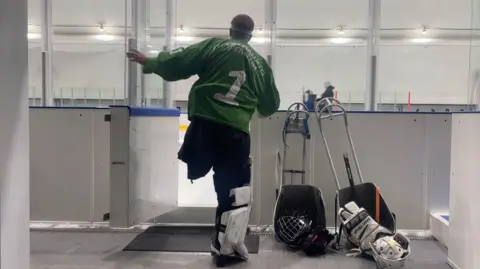At an ice rink in Vladivostok in Russia's far east, 30-year-old Dmitry Afanasyev trains with his teammates from Soyuz, a local Para ice hockey team. The players, each affected by the ongoing conflict in Ukraine, compete while navigating the hurdles of a war that robbed them of limbs and dreams.
Dmitry, like many of his peers, hopes to become a Paralympic champion despite Russian teams facing bans from international events due to the Ukraine war. His journey began on the battlefield, where he lost his leg to a mine while fighting to uphold Russian interests in Ukraine.
Vladivostok, situated more than 4,000 miles from the war, nevertheless bears the weight of its consequences. Fresh graves of soldiers who fell in the conflict punctuate the city's landscapes, each marked by military insignias and emotional tributes. Concurrently, a memorial serving as a testament to the Kremlin's 'special military operation' reflects the ideological slant of the authorities.
Despite the distance, discussions around the war appear fragmented. Residents like Svetlana express a yearning for peace, while others, such as Ilya, acknowledge that the conflict has altered their lives only in peripheral ways. Young people like Johnny London rarely engage in conversations about the war, often feeling helpless and distant from its realities.
The views expressed in Vladivostok showcase a spectrum of engagement with the war—from resolute support of Putin to a longing for normalcy free from conflict.
Amid this backdrop, visual tributes to Putin, including murals that romanticize his leadership, serve as a reflection of the local sentiment, revealing the complexity of national identity intertwined with the harsh realities of an ongoing war.


















